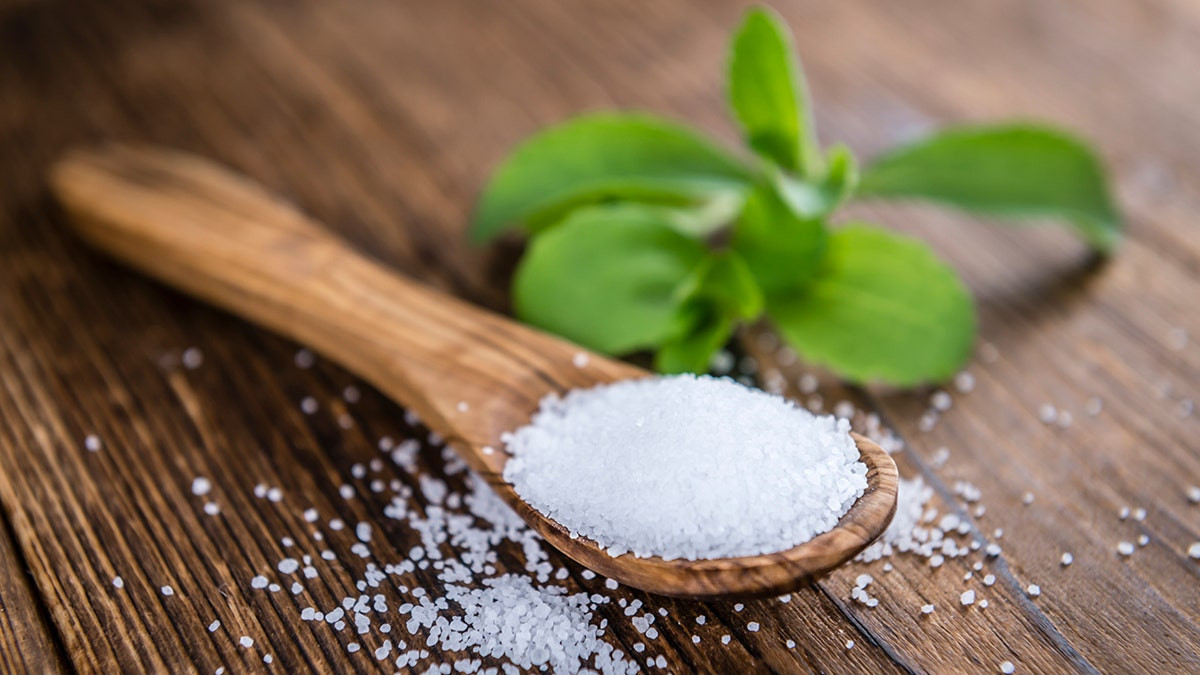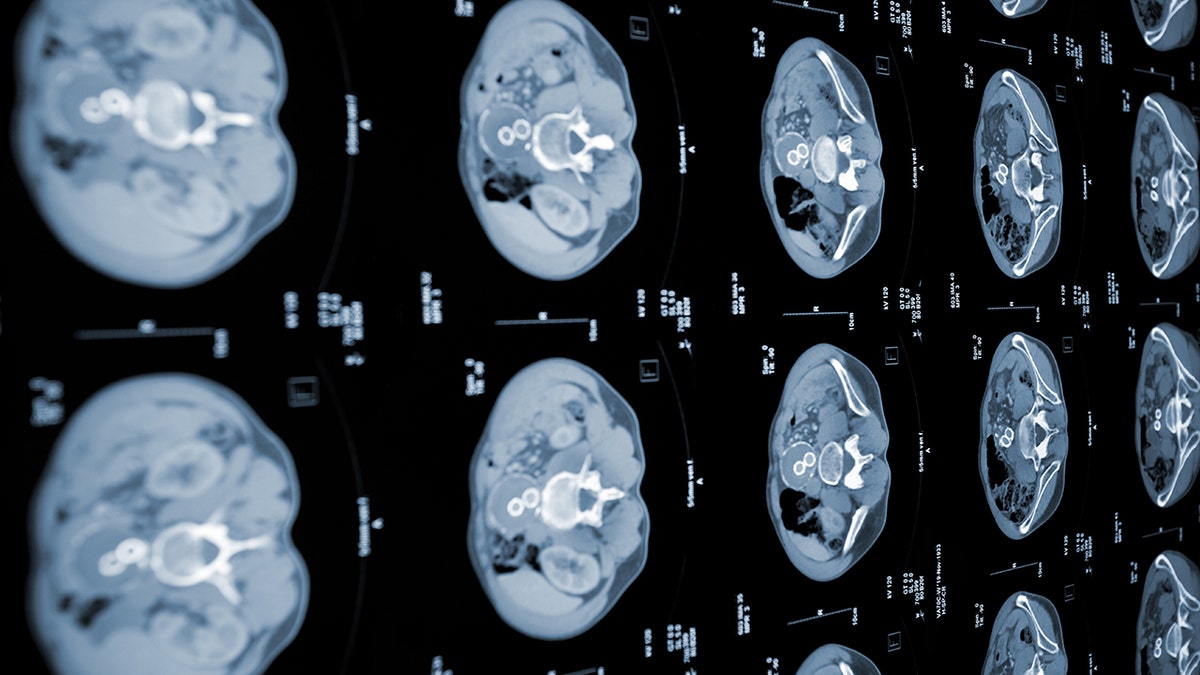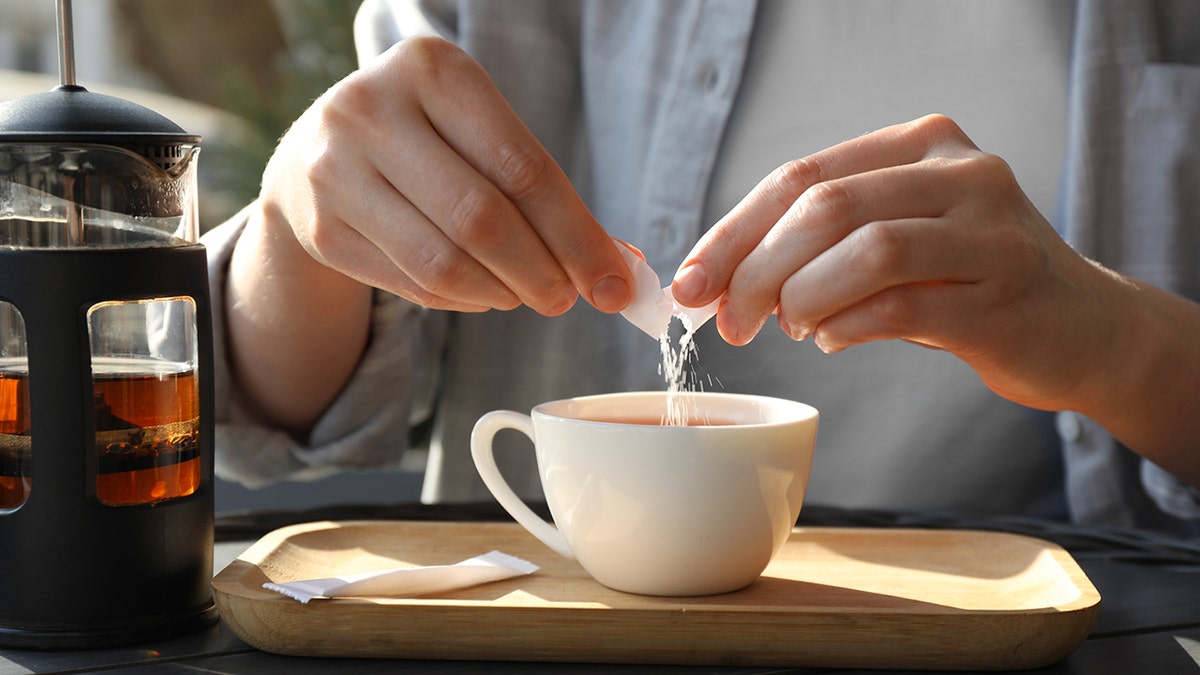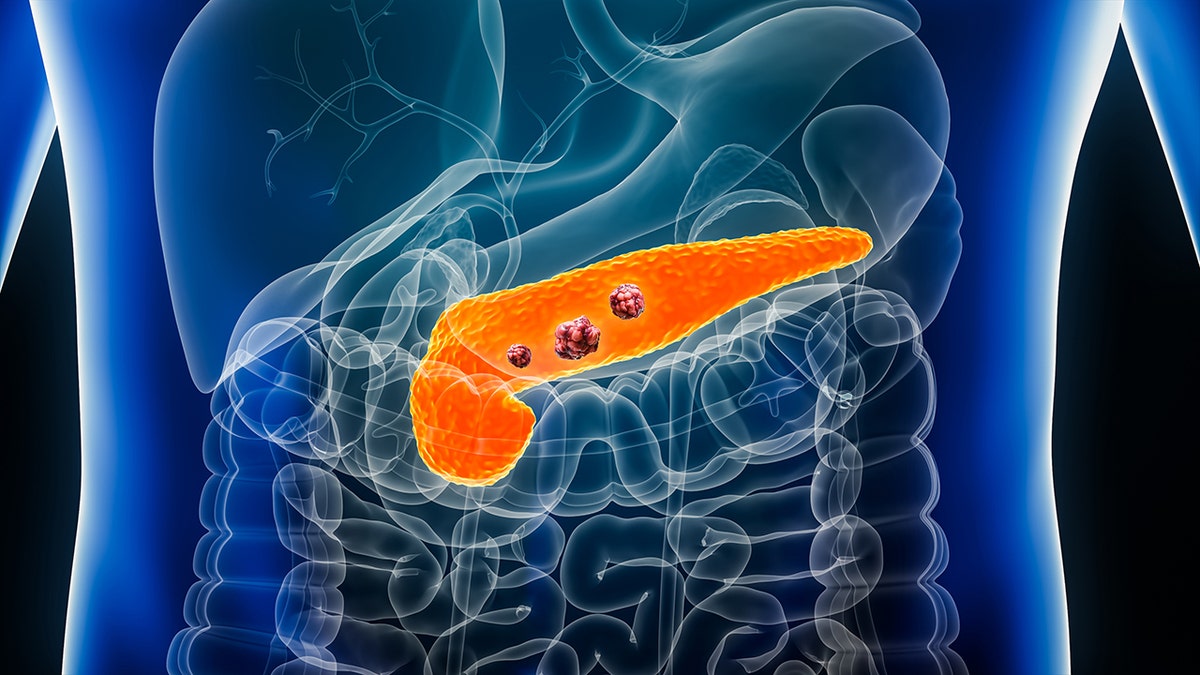
NEWYou can now listen to Fox News articles!
A household sweetener could hold the potential to create an anti-cancer treatment.
New research from Hiroshima University in Japan revealed that stevia leaf extract could help fight pancreatic cancer cells.
The leaves of the stevia plant (Stevia rebaudiana) are used to make stevia extract, a naturally sweet substance commonly used as a sugar substitute.
TWO CANCER DRUGS SHOW PROMISE IN REVERSING ALZHEIMER’S DEVASTATING EFFECTS
The study, published in the International Journal of Molecular Sciences, investigated the anti-cancer properties of stevia leaf extract when it is fermented with a certain strain of bacteria.
In laboratory research, the fermented extract exhibited “significantly enhanced antioxidant activity and cytotoxicity” against pancreatic cancer cells, the researchers revealed.

The chemical properties of stevia plant extract could help fight pancreatic cancer cells, researchers discovered. (iStock)
This led them to believe that this substance could serve as a “promising candidate for pancreatic cancer treatment.”
Paul E. Oberstein, M.D., medical oncologist and assistant director of the Pancreatic Cancer Center at NYU Langone Perlmutter Cancer Center, shared his thoughts in an interview with Fox News Digital.
ANCIENT ‘PHARAOH’S CURSE’ FUNGUS SHOWS PROMISE IN KILLING CANCER CELLS
“This is an interesting study because it evaluated something derived from a natural plant (stevia) and showed that it may have utility in stopping cancer cells from growing in the laboratory,” he said.
“As the authors point out, the actual stevia plant does not seem to have any benefit for stopping cancer, so they had to use a chemical process to change the plant and make it stronger with a fermentation process.”
“This is the process of how we discover new treatments – some of which turn out to be absolute game-changers.”
Oberstein recommended approaching this with caution, as it is unknown whether altering the plant will lead to side effects or toxicity.
The study was not performed on humans, so there is “still a lot that’s unknown about whether this will help patients,” the oncologist added.

The study was not performed on humans, so there is “still a lot that’s unknown about whether this will help patients,” an oncologist commented. (iStock)
As stevia extract alone does not have an impact on cancer cells, Oberstein said these findings most likely will not lead to any immediate changes in treatment plans.
“The study suggests that if the stevia can be changed in the lab, it may have an impact, so hopefully they will further test this and determine whether this effect happens when tested in people and if it doesn’t cause new side effects,” he added.
“I hope the researchers keep testing this in various formats and in people.”
CLICK HERE TO GET THE FOX NEWS APP
Dr. Kristen Arnold, a surgical oncologist and pancreatic cancer specialist at the Orlando Health Cancer Institute, reacted to these study findings in a separate interview with Fox News Digital.
“Pancreatic cancer is a very aggressive malignancy,” she said. “And we know that even with the most aggressive of therapies, unfortunately, our outcomes are not good.”

The stevia used as a beverage sweetener does not show any benefit to fighting cancer in its current form. (iStock)
“As a pancreatic cancer community, we spend a lot of time and there’s a lot of ongoing effort into trying to find better modalities to treat this disease.”
Although more research is needed to confirm these preliminary findings, Arnold said she is encouraged by the study.
CLICK HERE TO SIGN UP FOR OUR HEALTH NEWSLETTER
“I think the data’s very early to know if it’s ultimately going to be a game-changer, but it’s very exciting to know that we’re finding some positive pre-clinical data,” she said.
“This is the process of how we discover new treatments – some of which turn out to be absolute game-changers and make dramatic changes in the lives of our patients.”
“Not all of it pans out, but it’s a process of discovery,” Arnold added.

“Pancreatic cancer is a very aggressive malignancy,” an oncologist said. “And we know that even with the most aggressive of therapies, unfortunately, our outcomes are not good.” (iStock)
For those with pancreatic cancer, Arnold recommends seeking out appropriate clinical trial opportunities as new science develops.
For more Health articles, visit www.foxnews.com/health
“The clinical trials are ultimately what determine how we treat patients on a day-to-day basis,” she added.
Fox News Digital reached out to the study authors for comment.



